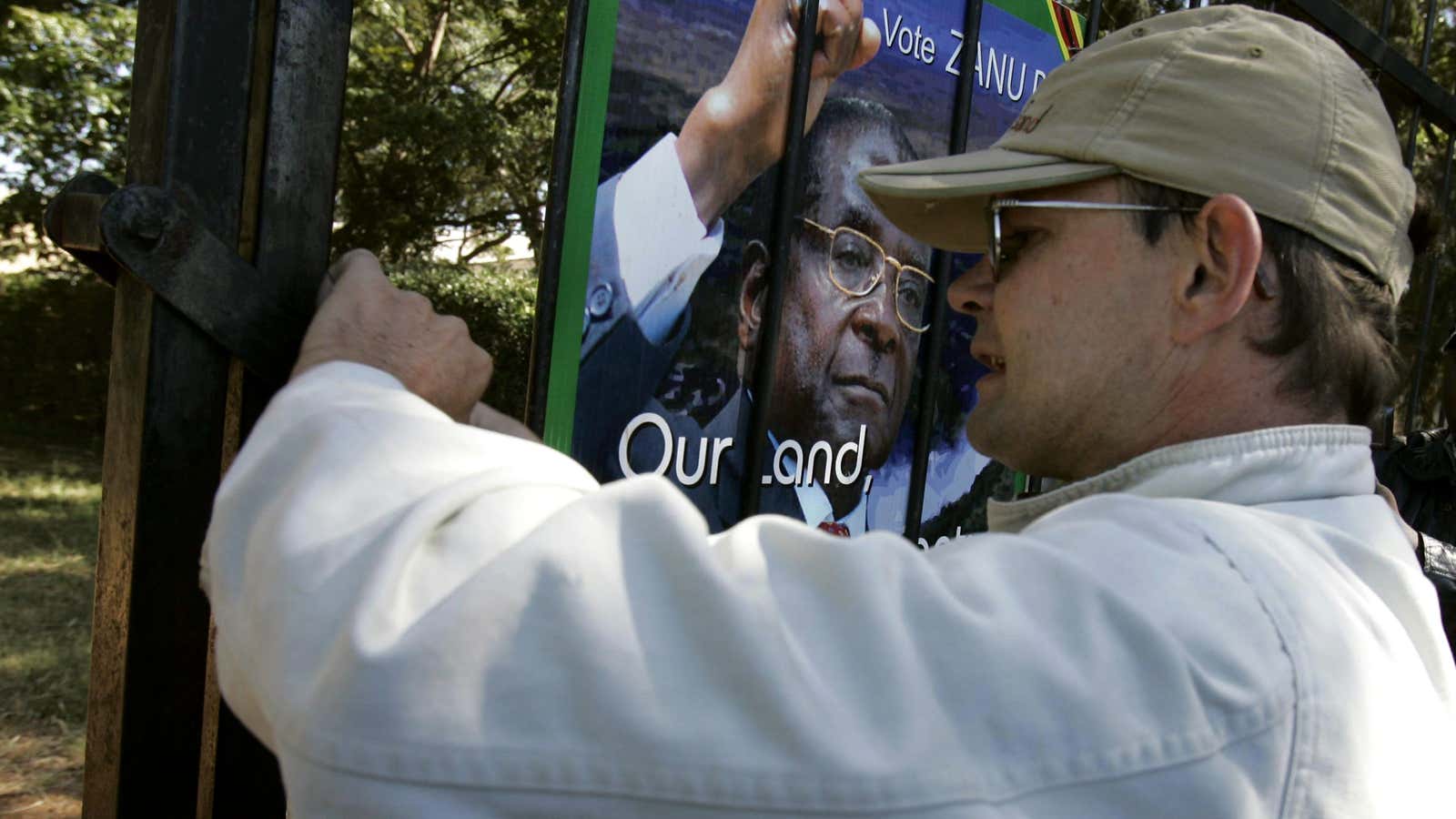Zimbabwe is considering giving land back to white commercial farmers effectively reversing a two-decade old controversial policy to reclaim land from the descendants of European settlers and others.
An estimated 4,000 farmers were evicted during a much-criticized Land Reform Program that was implemented in 2000 under late president Robert Mugabe who was removed from office in November 2017 after nearly 40 years in power.
After the harsh land grab, Zimbabwe’s economy nosedived with currency crises, bouts of hyperinflation and shortages of basic commodities causing much suffering for many Zimbabweans.
This year Zimbabwe’s government budgeted an additional of Z$380 million ($21 million) up top of a previously allocated $18 million for farmer compensation but the country, which is experiencing one of its worst economic downturns and a food shortage crisis, is struggling to pay the white commercial farmers.
As part of the compensation campaign the government is now proposing to offer land to about 200 farmers who were foreign nationals of countries that had ratified Bilateral Investment Protection Agreements with Zimbabwe.
The countries that are under this provision include Switzerland, Denmark, South Africa, Germany, the Netherlands and Britain.
But white Zimbabwean farmers are still in separate negotiations with the government. Former farmers are demanding up to $7 billion in compensation, according to previous reports.
“The object of these regulations is to provide for the disposal of land to persons entitled to compensation for acquisition of previously compulsorily acquired agricultural land,” said Lands minister Perrance Shiri in a government gazette published on Friday, last week.
Ben Purcel Gilpin, Commercial Farmers Union director, said the use of land as compensation would offer “some relief” to some of their farmers. “The government is currently seeking ways to deal with the compensation issue for all classes of affected farmers. We hope that progress will be made and a conducive investment environment is achieved where skilled farmers can produce effectively with secure and justifiable rights for the good of the whole nation,” he told Quartz Africa.
Around 300 white commercial farmers have been compensated since the acquisitions started, says Gilpin, and to date around 3,500 white commercial farmers are awaiting compensation.
Sign up to the Quartz Africa Weekly Brief here for news and analysis on African business, tech and innovation in your inbox
